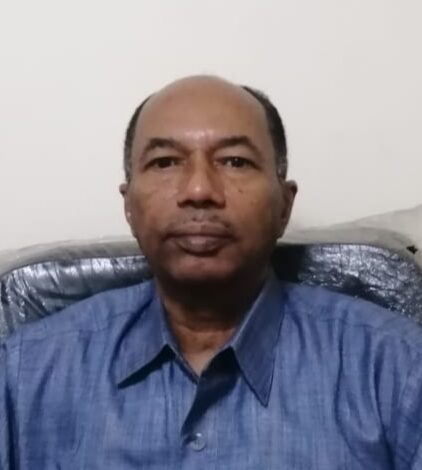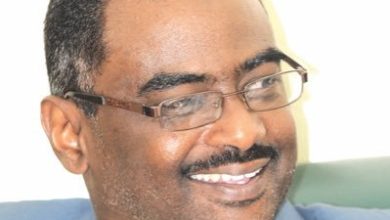Opinion
Economic Relations Between Dr. Jibril and Ali Youssef

By Dr. Adel Abdulaziz Al-Faki
The United States and European Union have announced they will not grant loans or aid to Sudan unless a civilian-led government is established in the country. International financial organizations have followed a similar stance, mainly due to the influence of the U.S. voting power within these institutions.
To adapt, Sudan needs a new strategy for its foreign economic relations. The ideal leaders for this approach are Foreign Minister Ambassador Ali Youssef and Finance and Economic Planning Minister Dr. Jibril Ibrahim. In a press conference on November 3, 2024, Dr. Jibril highlighted that international financial and other organizations working in health, education, and environment sectors are refraining from official dealings with the government, choosing instead to engage with civil society organizations.
This stance from Dr. Jibril is accurate. Following the “course correction” announced by His Excellency General Burhan on October 25, 2021—resulting in the dismissal of Dr. Abdullah Hamdok’s government—the U.S. and EU declared they would only cooperate with Sudan under a civilian-led administration, labeling the event a “coup” against the civilian government.
Due to U.S. voting power within international financial bodies and its influence on UN organizations it heavily funds, these institutions adopted the U.S. stance, insisting that cooperation depends on a civilian-led government. The international stance has deprived Sudan of significant economic benefits, such as the suspension of Sudan’s debt relief process under the HIPC initiative, despite Sudan meeting all necessary conditions.
Additionally, planned international loans and aid totaling approximately $2.675 billion were intentionally halted. These funds, coordinated by the International Finance Corporation, were earmarked for crucial sectors: $780 million for power reforms, $575 million for agriculture and water projects (especially for well-drilling in Kordofan, Darfur, and eastern Sudan), $300 million for health and education, $100 million for entrepreneurship projects (focusing on women and youth), $820 million for the “Thamrat” social assistance program (helping families manage economic restructuring), and $100 million for COVID-19 prevention initiatives for the Ministry of Health.
The freeze on debt relief and suspension of loans by U.S.-dominated Bretton Woods institutions demands a strong national will to explore alternative paths for Sudan’s foreign economic relations. In my view, the best leaders to guide this path are newly appointed Foreign Minister Ambassador Ali Youssef and Finance and Economic Planning Minister Dr. Jibril.
The proposed new path should rest on four pillars:
1. Mobilizing Domestic Resources
Drawing on the Brazilian model under President Lula da Silva, Sudanese business figures committed to this approach are ready to mobilize national resources.
2. Utilizing Preferential Loans from China
Sudan should engage with China’s Belt and Road Initiative on a win-win basis. Ambassador Ali Youssef, with his experience as Sudan’s former ambassador to China and his critical role in securing Chinese support for Sudan’s oil extraction, is ideally suited to lead this.
3. Bilateral Cooperation on a Win-Win Basis
This includes partnerships with countries supporting Sudan’s legitimate institutions, such as Russia, Qatar, Turkey, Iran, and Egypt. A significant portion of reconstruction projects could be allocated to leading Egyptian companies and entrepreneurs, highlighted by the Sudan-Egypt Business Forum scheduled for November 23, 2024, in Cairo.
4. Engagement with BRICS
Sudan should engage with BRICS (Brazil, Russia, China, India, South Africa) to explore mutually beneficial partnerships. Ambassador Ali Youssef, with his previous ambassadorial experience in both South Africa and China, has valuable connections with this group.
With determination, Sudan will not bow to unjust Western pressures but remain resilient through its armed forces, steadfast allies, and untapped economic potential. With genuine friends, Sudan’s economy will thrive. God willing.


